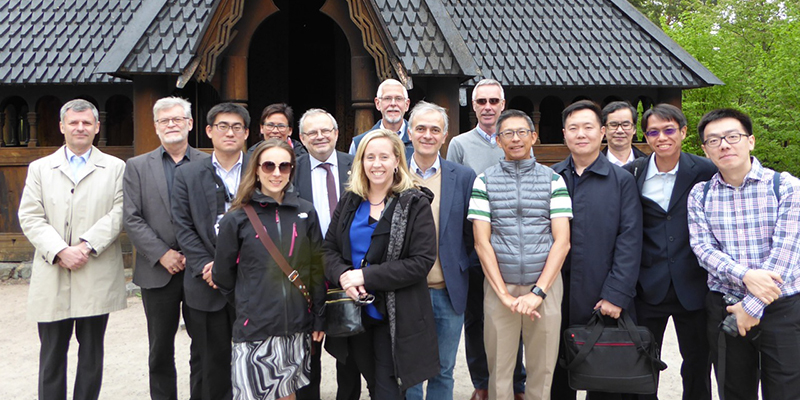Beth Tubbs, PE, FSFPE, senior staff engineer with the International Code Council, recently attended the Inter-Jurisdictional Regulatory Collaboration Committee (IRCC) meeting May 18-20 in Oslo, Norway. The IRCC consists of international members from regulatory drafting bodies focused upon the development of performance based building regulatory systems. There are 14 countries represented and they meet one-to-two times a year throughout the world. The IRCC is a group that has been in existence for 20 years. The Code Council has participated at some level with this group over that entire time. Although the focus is on performance-based regulatory systems, many of the emerging issues facing the building regulatory world fit into this framework. The implementation of emerging issues such as resiliency, sustainability, existing buildings, refugee housing and accessibility benefit from this international exchange of ideas in a similar way performance regulatory issues have. The key activity of this group is the sharing of their country specific experiences, which has resulted in collaboration on a more international level for building codes. On certain issues, countries reach out to one another to help determine how they should deal with issues affecting the building regulations.
During this meeting, a small workshop was undertaken on existing buildings. This topic often focuses on whether or not existing buildings need to perform at the same level as new construction, and how you can practically address in such buildings. Although each country has a unique situation and way of regulating buildings, we often have similar struggles. In Europe, there is a struggle for what is allowed to be used for the housing of refugees. Such housing needs to be built quickly and safely. This huge demand cannot wait for traditional residential housing requirements, so many creative methods are being used that don't address issues such as energy consumption or efficiency. Though this falls under the topic of new construction, questions on life cycle of these buildings emerge. If they are determined only to be safe or permitted for occupancy for a certain time frame of five years, for example, what happens when that time is reached. Must the building be destroyed or can it be upgraded and to what requirements? This will potentially become a difficult issue to regulate as an existing building.
The Code Council plans to continue participating with IRCC as it is an excellent resource to understand the bigger picture of building regulations. The sharing of ideas has been fruitful over the years, resulting in workshops, conferences and sometimes collaborative projects. As ICC becomes more active internationally, it is important to participate to enhance our understanding of this more global environment. |





